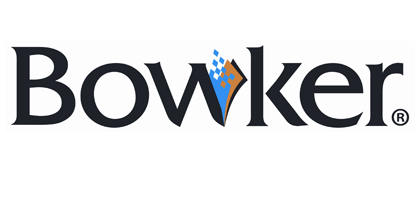
E-book consumers are increasing their purchase of books — both print and e-book formats — online and especially through in-app purchasing, and decreasing their use of brick-and-mortar stores, according to the Book Industry Study Group (BISG)’s closely watched Consumer Attitudes Toward E-Book Reading survey. The first installment in Volume Three of the survey reveals that more than half of e-book readers increased their use of apps to purchase books and more than one-third increased their use of general retail websites such as Amazon.com. The gains for these digital vendors come at the expense of brick and mortar bookstores, even independents. More than a third of e-book buyers decreased their spending at national chains and 29% said they are buying less from their local indie.
“The e-book market is developing very quickly, with consumer attitudes and behavior changing over the course of months, rather than years,” said Angela Bole, BISG’s Deputy Executive Director. “One of the strengths of this study is its ability to monitor ‘Power Buyers.’ They are predictors of where the market is moving, providing us with an ideal opportunity to look at what’s coming next.”
The BISG study, which is conducted by Bowker Market Research, follows Power Buyers (those who acquire e-books at least weekly) closely for their ability to act as predictors of overall consumer behavior. The latest installment of Consumer Attitudes Toward E-Book Reading shows a rosy outlook for publishing, with nearly three-quarters of e-book Power Buyers purchasing more titles overall. Further, nearly half of Power Buyers had more total spending on books in all formats.
Findings also show that while dedicated e-readers remain the dominant e-reading platform, especially among Power Buyers, multi-function tablet devices and smartphones are gaining in popularity. Consumer Attitudes Toward E-Book Reading results show:
- Almost 17% of respondents indicated that tablets were the devices most used to read e-books — up from 13% in the previous survey.
- Respondents who preferred smartphones jumped from 5.3% to 9.2%.
- Dedicated e-readers were preferred by 60.9% of all respondents, down from 71.6% in the previous survey.
Since November 2009, Consumer Attitudes Toward E-Book Reading has been tracking the habits and preferences of book consumers who say they have acquired an e-book or a dedicated e-reading device within the past 18 months. Volume Three is sponsored by Baker & Taylor, Barnes & Noble, and Harlequin.
Consumer Attitudes Toward E-Book Reading is powered by Bowker Market Research. In addition to quarterly PDF Summary Reports, Volume Three of Consumer Attitudes Toward E-Book Reading is published as a dynamic online report via Real-Time Reporting: a unique web-based tool set displaying the raw data derived from responses — drillable and sortable, with on-demand accessibility.
Data for Consumer Attitudes Toward E-Book Reading was derived from a nationally representative panel of book consumers (men, women and teens). Each month a new group of more than 6,000 respondents complete surveys about their book purchasing behavior for Bowker Market Research. Out of more than 72,000 possible panelists drawn from the last 10 months, respondents were qualified for the BISG e-book survey by indicating they had either purchased a “digital book or e-book” or owned a dedicated e-reading device (such as Kindle, NOOK, or Sony Reader). The resulting sample size for the survey was 1,036, an increase from prior fieldings.
The survey findings are available for sale both as a PDF Summary Report and as a complete data compendium, accessible online. A substantial discount is available for BISG members. For more information, or to order a copy of Consumer Attitudes Toward E-Book Reading, visit www.bisg.org/publications/product.php?p=19&c=437.



























